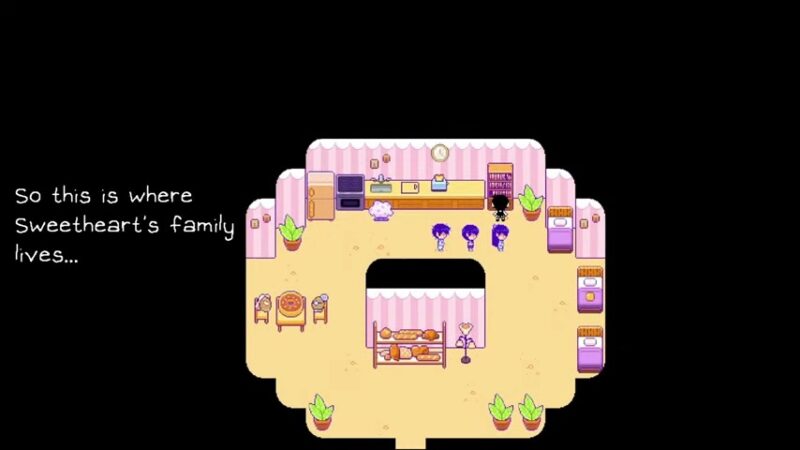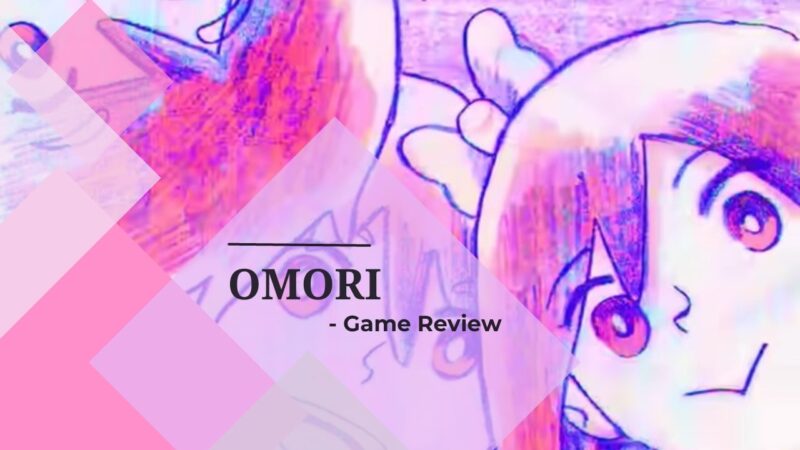“OMORI” is a game that takes you on a rollercoaster of emotions, from the dizzying heights of joy to the depths of fear and anguish. It’s a game that is not only cute and imaginative, but a sit-on-the-edge-of-your-seat thriller that is well worth the wait.
The game, with its charming 8-bit pixel and hand-drawn sketchbook styles, offers a glimpse into the psyche of Omori, a young boy experiencing a wide range of human emotions. While it may seem like your typical cutesy RPG Maker game at first glance, Omori succeeds in navigating deep themes of darkness, including depression and anxiety, in the haunting and beautiful delusions its protagonist creates to escape his reality.
Dive into the Dream World
Light spoilers ahead!
After being hounded by my friend to give this game a shot, I finally caved. I figured I wasn’t going to be sacrificing much, considering it was only $20 on Steam. The game looked interesting enough – it looked to be a cute little role playing game (RPG) about a group of friends going on misadventures. But boy, was I wrong. So wrong.
Upon launch, “OMORI” greets you with a comforting warning stating: “This game contains depictions of depression, anxiety, and suicide, and may not be suitable for all audiences. Viewer discretion is advised.”
I brushed it aside with little care and launched a new game.
“OMORI” tells the story of a sixteen year old teenager named Sunny, who after the unexpected suicide of his sister four years prior, becomes a social recluse. Sunny spends his days asleep in his room, dreaming of his imaginary world he calls “Headspace.” A world where Sunny imagines himself as a version of his 12 year old self named Omori.
In Headspace, Omori spends his time either stuck in a vast, empty room named “Whitespace”, or venturing the vibrant world outside with his best friends Hero, Kel, Aubrey, and Basil, as well as his sister Mari; all dream counterparts of his real best friends –– the ones he shut out from his life.
One day, while hanging out with his friends in Headspace, Basil picks up a photo that was knocked loose from his photo album of the friend group, and is horrified by the contents. He tries to explain, but Headspace corrupts, and Omori is forced back into Whitespace, with Basil nowhere to be found.
Back in the real world, Sunny is set to move away from his house with his mother in three days, and he had planned to spend the rest of his time holed up inside house, when his friend Kel knocks on his door, asking to hang out with him one last time.
Depending on the players choice, Sunny can either hang out with Kel, or stay inside for the three days (though it is not recommended to ignore Kel on your first playthrough). Upon talking to Kel, Sunny learns that his friends all split apart following the death of Mari – with none of them ever fully recovering from her sudden departure. Through out the three days, Sunny transitions between the two worlds – confronting Aubrey and Basil in the real world, and looking for Basil in the dream world.
“OMORI” uses a very basic turn based combat system with character statuses. Enemies and allies can have their emotions changed between angry, sad, and happy, with each emotion having a strength and weakness against the other in a rock-paper-scissors-like fashion. There is not much in the way of gameplay here, though I do have to give it props for utilizing the battle system in pretty unique scenarios throughout the game – especially in the final act.
If there is anything that deserves high praise, it’s the soundtrack. If my “Ace Attorney” reviews are anything to go by, it’s that I love and appreciate video game soundtracks. “OMORI’s” soundtrack is – and I am not exaggerating – perfect. You can tell just by listening to it that the game’s music producer, Pedro Silva, put lots of thought and care into curating each part of the game’s soundtrack. Each area, battle, and boss theme is wonderful – and the music in the final act of the game? Simply phenomenal.
“OMORI” is one of the most recent games that I can remember that left such an impact on me. While childish, wacky and zany for the most part, “OMORI” discusses serious themes, such as that of loss, grief, depression, and anxiety to name a few. Over the course of a day, I played through the entire final act of the game, and by the end of it, I was left emotionally wounded.
I’m not ashamed to admit that I did shed a tear in one of the final scenes, but that only goes to show just how much the game affected me. I thought about the game and it’s characters for days afterwards – something that’s really only happened to me after binge watching a great TV show, hardly ever a video game.
The game does a great job of juxtaposing the innocence of childhood with the realities of growing up – and exploring the idea that, no matter how much we want to run away and escape into a world where our worries don’t exist, we can’t move on without accepting and acknowledging the realities of the world and the consequences of our actions.
How to Download and Install
To download and install OMORI, you’ll need to purchase the game from a digital distribution platform like Steam. Once purchased, the game will appear in your library. Click on the game and select ‘Install’. Follow the prompts to choose the installation location and agree to the terms. The game will then download and install automatically.
Troubleshooting Installation Errors
If you encounter an error during the installation, there are a few steps you can take. First, ensure that your system meets the minimum requirements for the game. If it does, try restarting your computer and attempting the installation again. If the error persists, you may need to update your graphics drivers or DirectX. If all else fails, reach out to the game’s support team for further assistance.
Games Similar to OMORI
If you enjoyed OMORI, you might also like games such as “Earthbound”, a cult Japanese classic that explores American capitalist culture while the player confronts evil lurking in a plethora of worlds and suburban-scapes.
Another game to consider is “Yume Nikki“, a game that explores similar themes by leaving the player to explore mazes and piece together fantasy and reality.
Lastly, “Undertale”, a subversive and comedic combat game known for giving the player the choice to not fight anyone, also shares similarities with OMORI in terms of its deep, dark narrative development and humorous, semi-absurd dialogue and interactions.

Bottom Line
In conclusion, I highly recommend playing “OMORI.” If you enjoy plot driven games, this game was made for you. I promise you – you will not be disappointed. OMORI is a beautifully heartbreaking game that takes players on a journey through the human psyche. Its unique blend of RPG elements, psychological themes, and engaging narrative make it a must-play for any fan of the genre.

